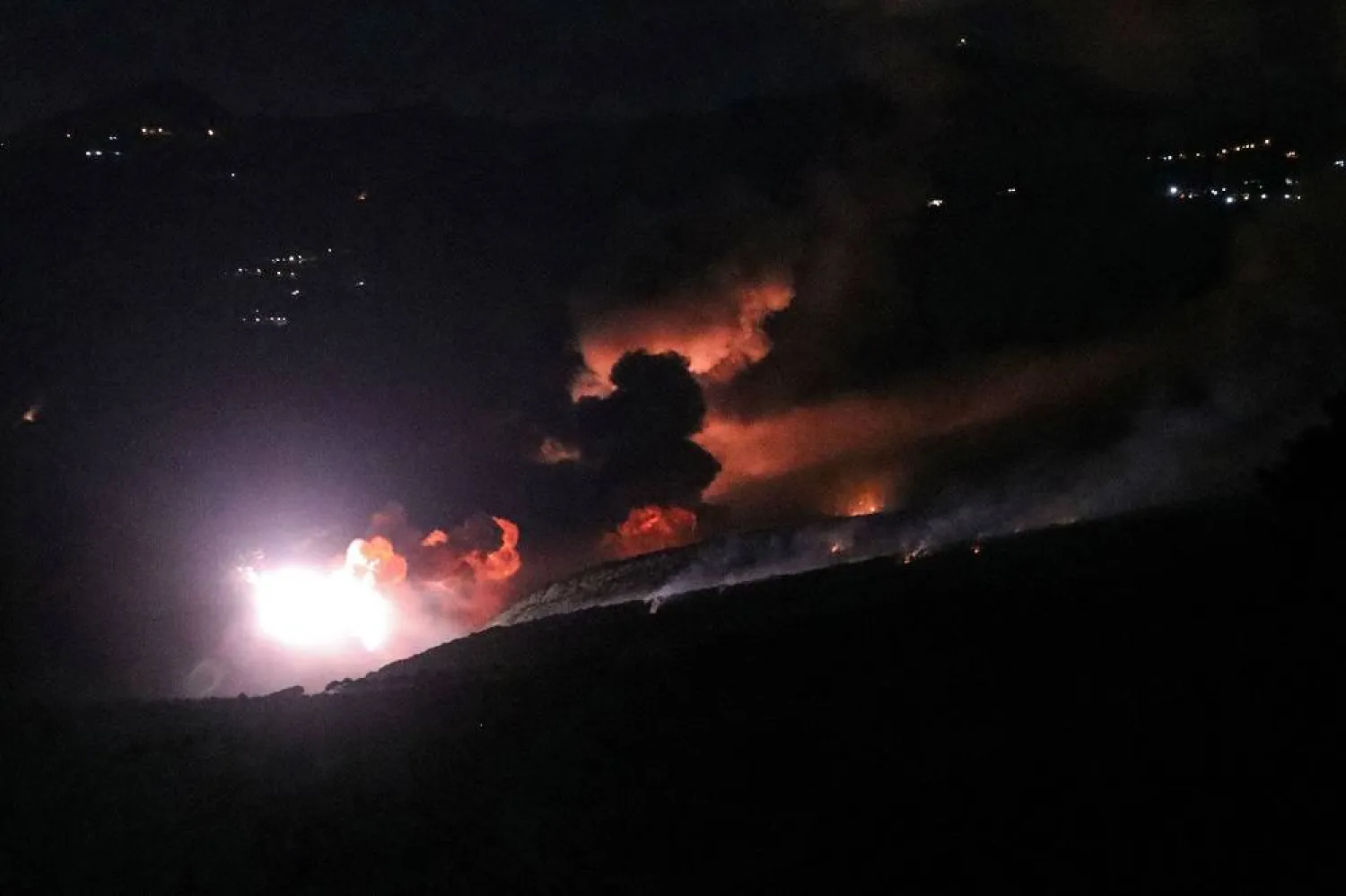UN peacekeepers in Lebanon urged immediate de-escalation as hostilities rumbled on at the Lebanese-Israeli border on Friday, following Israel's most intense airstrikes in nearly a year of conflict with the Iran-backed Hezbollah.
Israel's military said on Thursday it had struck hundreds of Hezbollah rocket launchers that had been set to fire towards Israel, in what security sources in Lebanon said was the heaviest such attack since hostilities began last October.
Ignited by the Gaza war, the conflict has intensified significantly this week, with Hezbollah suffering an unprecedented attack in which pagers and walkie talkies used by its members exploded, killing 37 people and wounding thousands.
The UNIFIL peacekeeping force in south Lebanon said on Friday morning that the previous 12 hours had seen "a heavy intensification of the hostilities" across the Lebanese-Israeli border and in its area of operations.
"We are concerned at the increased escalation across the Blue Line and urge all actors to immediately de-escalate", UNIFIL spokesperson Andrea Tenenti told Reuters, referring to the line that delineates the border between Lebanon and Israel.
Israeli airstrikes on Friday hit at least three villages in south Lebanon, according to security sources in Lebanon and Hezbollah's al-Manar television, which broadcast footage of a cloud of smoke rising from one of the attacks.
There was no immediate comment from the Israeli military.
Hezbollah said its fighters had fired a guided missile at an Israeli troop position in Metula, an Israeli town on the border targeted frequently by the Lebanese group over the last year.
The Israeli military on Friday lifted orders restricting movement and large gatherings that it had issued on Thursday night for a number of communities in northern Israel and the Golan Heights. The restrictions were ordered following the start of the Israeli strikes.
Security sources in Lebanon said four people were wounded in Israel's intensive bombardment on Thursday. It was not immediately clear if they were Hezbollah members.
The year-long conflict between Israel and Hezbollah is the worst since they fought a war in 2006. Tens of thousands have had to leave homes on both sides of the border.
While the conflict has largely played out in areas at or near the frontier, this week's escalation has heightened concerns that it could widen and further intensify.
The United States on Thursday warned all parties in the Middle East against escalation, saying Washington's priority is to find a diplomatic solution.
"We will continue to stand by Israel's right to defend itself, but we don't want to see any party escalate this conflict, period," State Department spokesperson Matthew Miller told a news briefing.
'RED LINES'
In a TV address on Thursday, Hezbollah leader Hassan Nasrallah said the device explosions on Tuesday and Wednesday "crossed all red lines" and vowed to punish Israel.
Israel has not directly commented on the pager and radio detonations, which security sources say were probably carried out by its Mossad spy agency, which has a long history of carrying out sophisticated attacks on foreign soil.
The 15-member Security Council is due to meet on Friday over the blasts.
Israeli Defense Minister Yoav Gallant said late on Thursday that Israel will keep up military action against Hezbollah.
Israel has said its goal is to ensure the safe return of Israelis to northern Israel.
Hezbollah, an ally of the Palestinian armed group Hamas, says its attacks on northern Israel aim to support Palestinians under Israeli fire in the Gaza Strip.
Nasrallah said on Thursday that the Lebanese front would not stop "before the halt of the aggression on Gaza".









